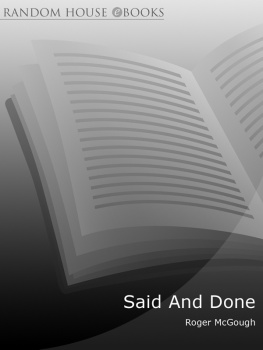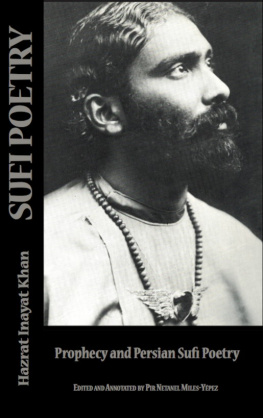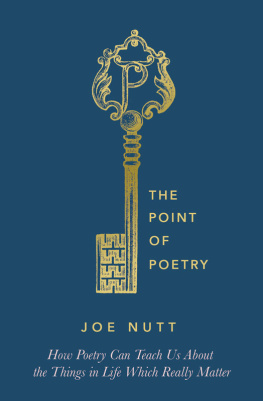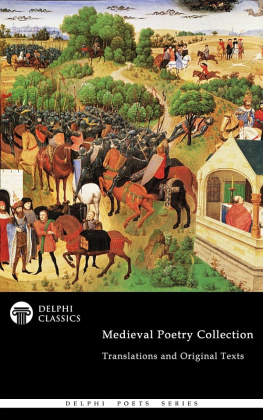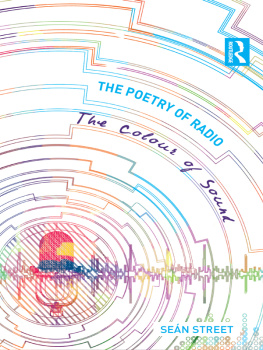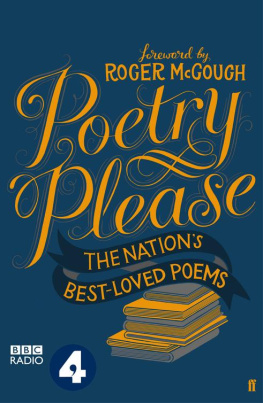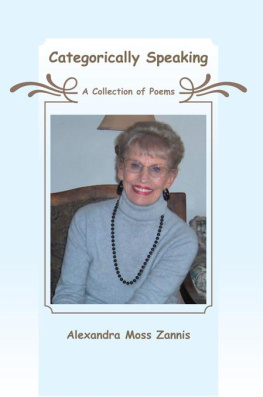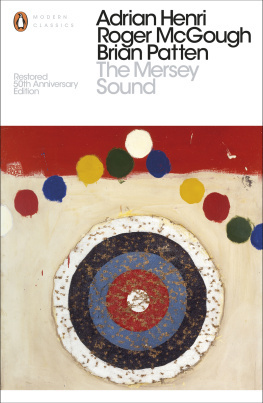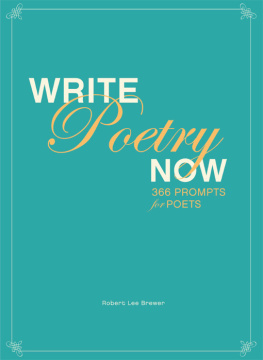Said and Done
Roger McGough

Century London
This eBook is copyright material and must not be copied, reproduced, transferred, distributed, leased, licensed or publicly performed or used in any way except as specifically permitted in writing by the publishers, as allowed under the terms and conditions under which it was purchased or as strictly permitted by applicable copyright law. Any unauthorised distribution or use of this text may be a direct infringement of the authors and publishers rights and those responsible may be liable in law accordingly.
Version 1.0
Epub ISBN 9781407071114
www.randomhouse.co.uk
Published by Century in 2005
1 3 5 7 9 10 8 6 4 2
Copyright Roger McGough 2005
Roger McGough has asserted his right under the Copyright, Designs and Patents Act, 1988 to be identified as the author of this work
This book is sold subject to the condition that it shall not, by way of trade or otherwise, be lent, resold, hired out, or otherwise circulated without the publishers prior consent in any form of binding or cover other than that in which it is published and without a similar condition including this condition being imposed on the subsequent purchaser
First published in the United Kingdom in 2005 by Century The Random House Group Limited 20 Vauxhall Bridge Road, London, SW1V 2SA
Random House Australia (Pty) Limited 20 Alfred Street, Milsons Point, Sydney, New South Wales 2061, Australia
Random House New Zealand Limited 18 Poland Road, Glenfield Auckland 10, New Zealand
Random House (Pty) Limited Isle of Houghton, Corner Boundary Road & Carse OGowrie, Houghton, 2198, South Africa
The Random House Group Limited Reg. No. 954009
www.randomhouse.co.uk
A CIP catalogue record for this book is available from the British Library
Papers used by Random House are natural, recyclable products made from wood grown in sustainable forests. The manufacturing processes conform to the environmental regulations of the country of origin
ISBN 0 8441 3811 9
Typeset by SX Composing DTP, Rayleigh, Essex Printed and bound in the United Kingdom by Clays Ltd, St Ives PLC
CONTENTS
For my children
Also by Roger McGough
Frinck, (A Life in the Day of) and Summer with Monika
Penguin Modern Poets Ten: The Mersey Sound (With Adrian Henri and Brian Patten)
Watchwords
After the Merrymaking
Out of Sequence
Gig
Sporting Relations
In the Glassroom
Summer with Monika
Holiday on Death Row
Unlucky for Some
Waving at Trains
New Volume (With Adrian Henri and Brian Patten)
Melting into the Foreground
Selected Poems 19671987
Penguin Modern Poets Four (With Liz Lochhead and Sharon Olds)
Defying Gravity
The Spotted Unicorn
The Way Things Are
Everyday Eclipses
Collected Poems
For Children
Mr Noselighter
You Tell Me (With Michael Rosen)
Sky in the Pie
Noahs Ark
Nailing the Shadow
An Imaginary Menagerie
Helen Highwater
The Great Smile Robbery
The Stowaways
Counting by Numbers
Pillow Talk
The Lighthouse that Ran Away
Another Custard Pie
Stinkers Ahoy!
My Dads a Fire Eater
Lucky
The Magic Fountain
The Kite and Caitlin
Until I Met Dudley
Bad, Bad Cats
Good Enough to Eat
Moonthief
The Bees Knees
Dotty Inventions
Daniel and the Beast of Babylon
All The Best (Selected Poems)
Said and Done
When alls said and done
Therell be nothing left to say or do.
ACKNOWLEDGEMENTS
Collected Poems published by Penguin Books in 2003 contains the complete poems from which the follow extracts have been taken:
The Railings (page 72), In at the Kill (page 117), Cinders (page 119), The Way Things Are (page 121), Let me Die a Youngmans Death (page 134), At Lunchtime (page 180), Discretion (pages 211, 212), Huddersfield (page 240), Cardiff (page 241), The Identification (pages 2423), Out of Sequence (page 245), The Rot (page 248), Here I Am (pages 303, 306, 330).
Extract from The Moons Last Quarter (page 319), by Robert Graves kindly reproduced by permisison of Carcarnet Press.
My thanks to Kate Watkins, my editor at Century, to Peters, Fraser and Dunlop, to Adrian Mealing at UK Touring and to Phil Bowen whose story of the Mersey Poets A Gallery to Play to (Stride Publications), reminded me of details I might have forgotten.
LETTER FROM THE POET
Dunrhymin
London
England
Ladies and gentlemen,
I apologise sincerely for being unable to attend this evenings performance. Owing to pressure of work, an increasing sense of unreality, and the fear of drowning in a sea of upturned faces, I have employed an out-of-work actor to impersonate me.
On my behalf he will read poems, answer questions, sign books, get drunk and generally keep up the poetic image.
Of course, there will be weaknesses in performance, the overeagerness to please, the nervous mannerisms too consciously affected, and it goes without saying that he lacks the charisma, charm, wit and raw animal sexuality of the real poet.
I trust, however, that you will enjoy the evening, and forgive my underpaid stand-in should the mask slip and his true self show through.
Yours faithfully,
Roger McGough
This is a letter I often read out before a performance, usually in a foreign country where I am unknown, and where the only photographs of the author available are those on the back covers of books published long ago. Occasionally it will result in puzzled mutterings in Czech or Portuguese which I interpret as Is he really an actor? Is he really the poet? Does it matter either way? Im only here for the wine and canaps.
It has long been a daydream of mine to have impersonators going around the world at other peoples expense, reading my poems in packed auditoria, selling my books, forging my signature, and popping a huge cheque and a thank-you letter to me in the post. In that way I could stay at home and quietly get on with writing works of flawed genius. My dilemma is that I have always regarded the creative impulse as something pure and seen a paradox in the need to show off the result, to have it published, sung, or hung on the wall, the shy extrovert, or the wheedling introvert Look at me, look at me, I have never fully resolved the conflict between the privacy of the poet and the public face of the performer, and the trick has always been to try to achieve a balance between the two.
I have been quoted as saying (a risk you take when someone asks for a quote and you oblige) that my favourite journey is not the one over Hammersmith Bridge on a summers evening, or the one on the ferry crossing the Mersey, but the one I make at the end of a show from the microphone centre stage to the dressing room. Its terribly coy isnt it? The image it conjures up of the performer in a hurry to escape the warm embrace of the audience to the solitude backstage, the empty dressing room, the unforgiving mirror. It is true, however, that Im not very good at bowing and saying thank you, and coming back for encores because I feel embarrassed, afraid of overstaying my welcome, but its equally true that one of my favourite journeys is the one from the wings to the centre of the stage but please dont quote me on that.

